Most sports anime have a “clash of the titans” moment or three, and Hinomaru Zumou is no exception. Things are a bit different with this series for a few reasons, though. Not least among those is that given the nature of sumo, the very concept takes on additional significance (and literalism). But you also have the fact that the protagonist is anything but a kyoujin in a sport full of them, and that lends the events of this episode an interesting sort of irony.
Another interesting (and thorny) issue that’s quite prominent in modern sumo but not much mentioned in Hinomaru Zumou (so far) is the presence of foreigners in the sport. Simply put the Japanese are not, on average, as largely-proportioned as some other nationalities. Professional sumo is currently dominated by foreign wrestlers – especially those from Mongolia but also places like Bulgaria and Hawaii. There isn’t a native-born Yokozuna currently, in fact, and five of the last six have been foreigners. In a sport so tied in with the national identity in a nation where xenophobia is far from extinct, this is a development that’s been by no means universally embraced by fans of sumo (who tend to be pretty conservative and traditional, on the whole).
It’s for that reason that I’m going to be fascinated to see how Hinomaru Zumou takes on the subject, and with at least one Mongolian-born rikishi on Tennouji’s team, we may find out soon enough. As for the tournament, Daichi is progressing like a rocket – indeed, in the early rounds you apparently stop fighting after clinching so we never do get to see Kirihito in the ring. We do get to see Kei, though, after Daichi has already won the first four matches of their first bout on the second day – because in later rounds, all matches must be contested. And he loses again, in a rout (again). This is obviously building towards a breakthrough moment for him sooner or later, but it sure is frustrating to watch in the meantime.
As the focus shifts to the individual tournament, the Daichi boys prepare to take a break – but they’re accosted by the Ishigami squad, who offer to share observations from their practice matches with Tottori Hakurou. The real focus, though, stays in the stadium, because that’s where Tennouji is at last taking on Kuze Sosuke (in the individual semi-finals). This is indeed that veritable clash, the collision of the two strongest schoolboy rikishi (as built up by the story). When the immovable object meets the irresistible force something has to give, and this is one of the more interesting bouts of the show so far.
Sosuke is the son of a great Yokozuna of course, and Tennouji a commoner. But Tennouji is the more successful high school wrestler, and older – he more or less enters the ring as the defender (and literally, he is). I like the way he’s painted as having two wrestlers within him – the careful pragmatist who studies his opponents before and during his matches, and takes the path of least risk, and the madman who fights on pure instinct when he’s against someone he respects. But if he’s the rikishi loved by the sumo Gods, Sosuke is a sumo God himself – he appears for now to be the destined rival for Ushio, at least in the long term, and after a brutal battle he carries the day.
For now, though, Tennouji seems more likely to matter. There’s been no indication that Sosuke’s team is a threat, and if anything Tennouji is going to be pretty pissed off about having his individual crown taken from him (we never even see the final match, but it’s hard to image Kuze lost). This is where the rubber meets the road for Hinomaru Zumou, especially as Ushio is still a first year – would the series really have Daichi defeat a powerhouse like Tottori already (well, Yowapeda did it)? Perhaps it might even be worth considering that the anime – given a two-cour shelf life and no more – could craft a different result than the manga, though I’d bet against that.


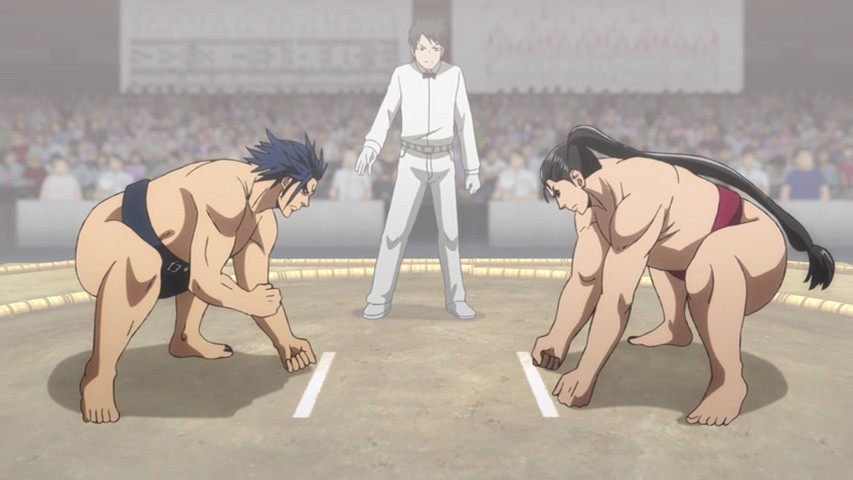

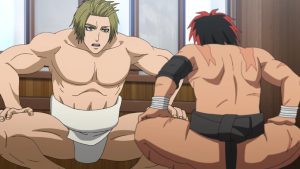
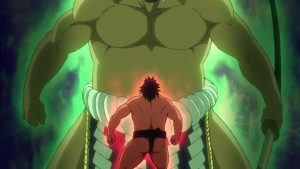
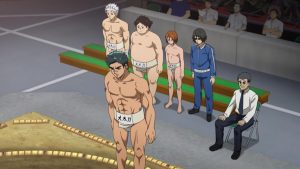
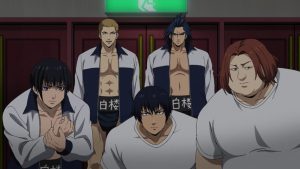
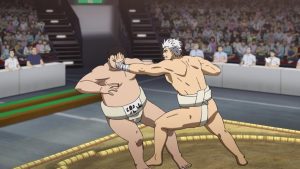
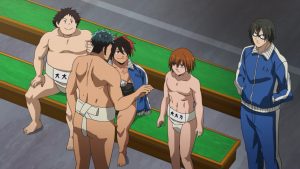
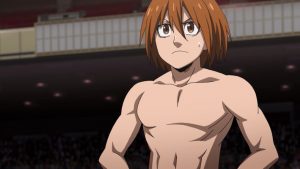
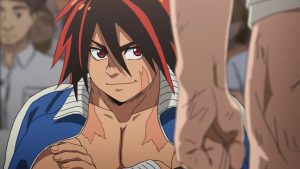
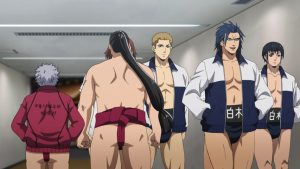
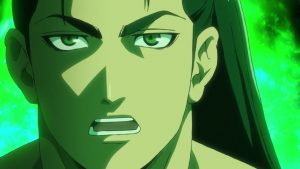
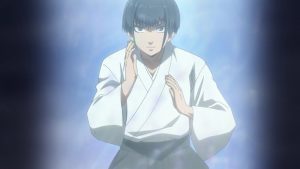

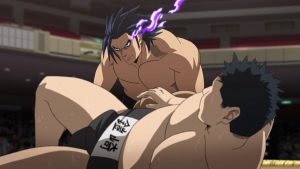
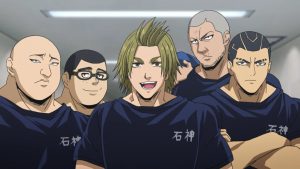

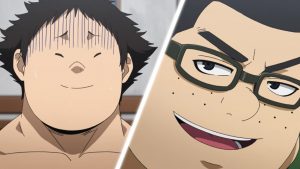


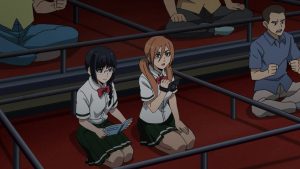
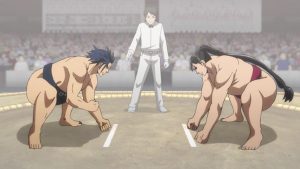

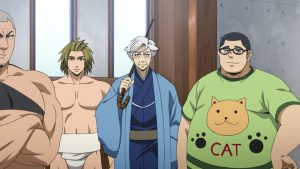

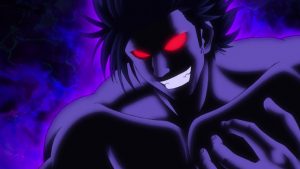
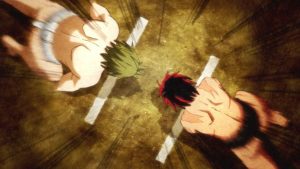
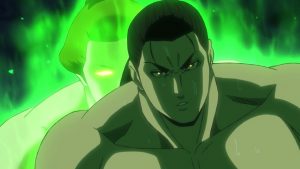
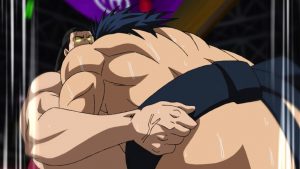
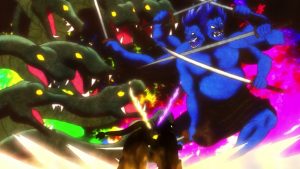
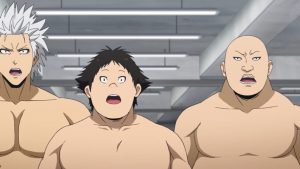


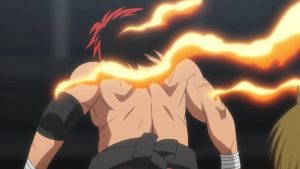
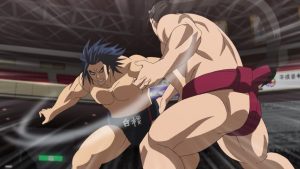
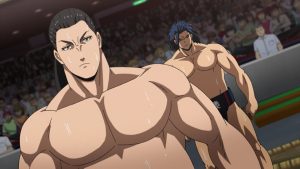
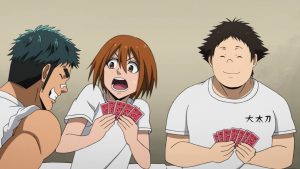

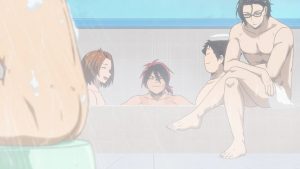
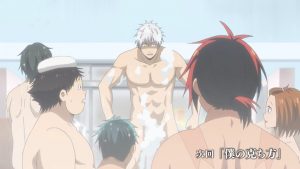
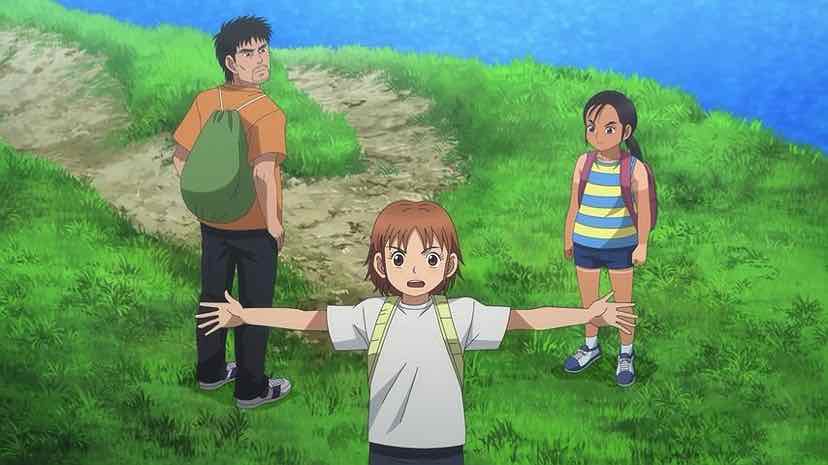

Asupara
February 9, 2019 at 10:58 pmThe dominance of foreign wrestlers in sumo was mentioned (or at least hinted at) before. It’s the reason the stronger Japanese high school rikishi are known as National Treasures.
Bat being forgeign wasn’t as obvious when he was introduced fanboying Shibakiyama.